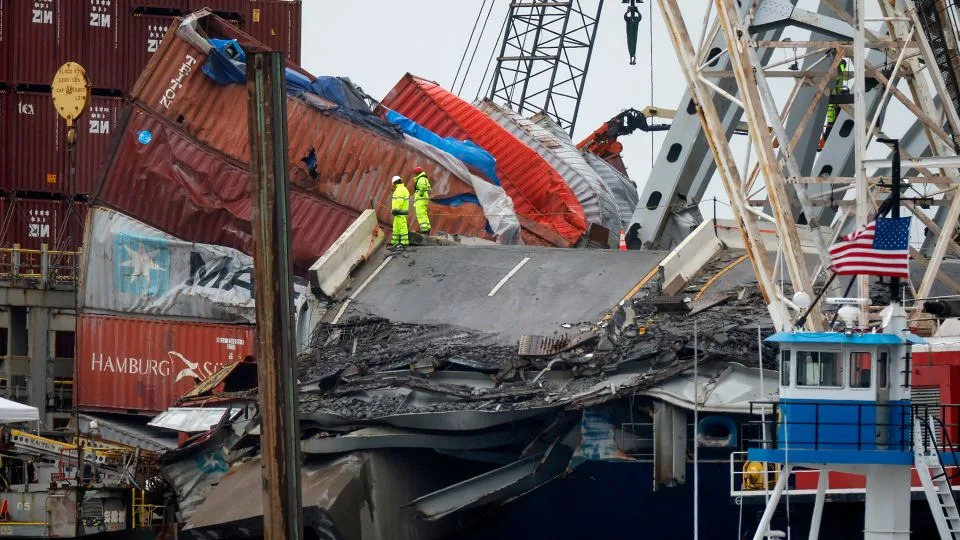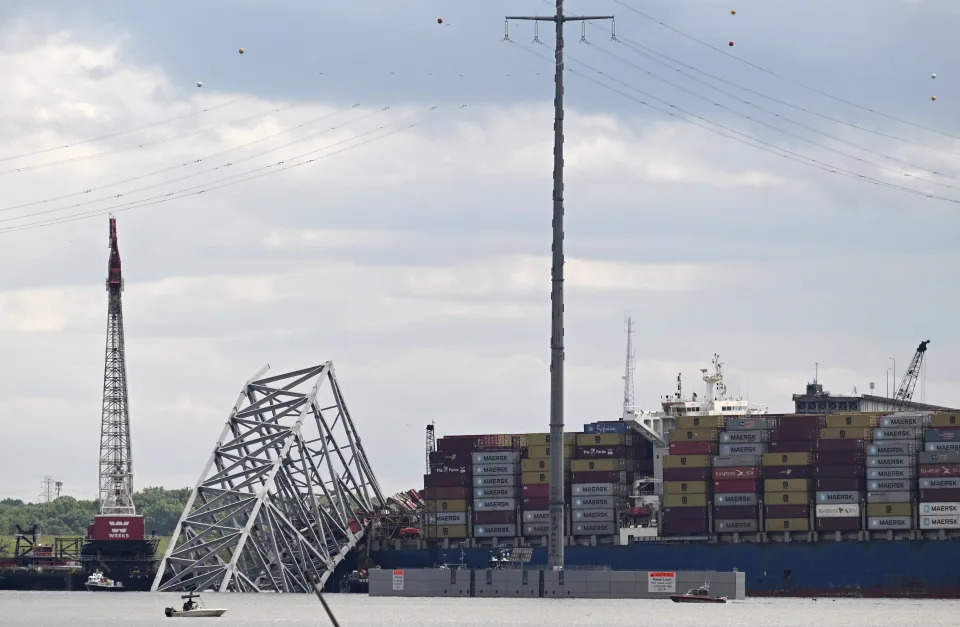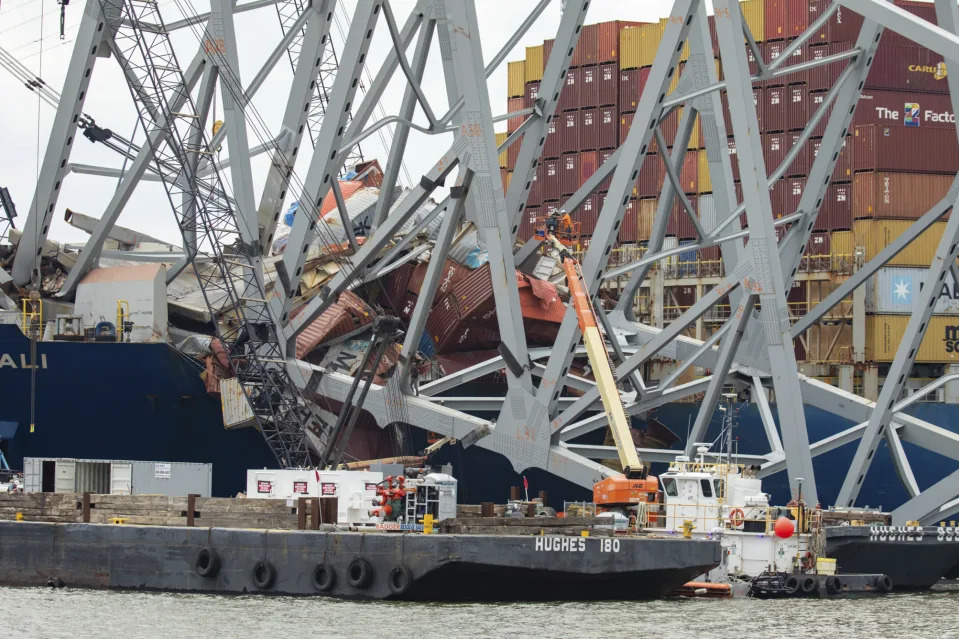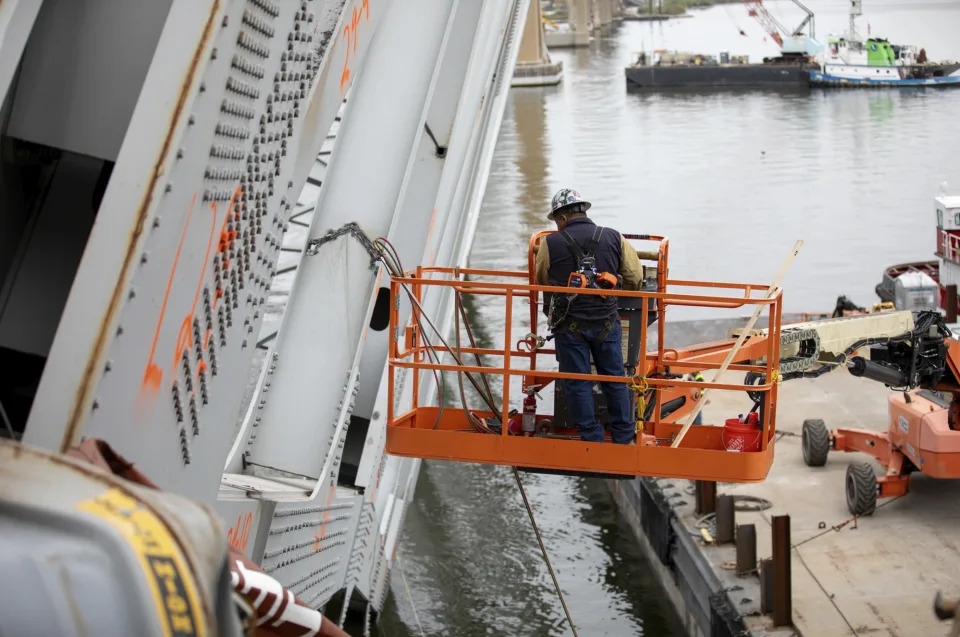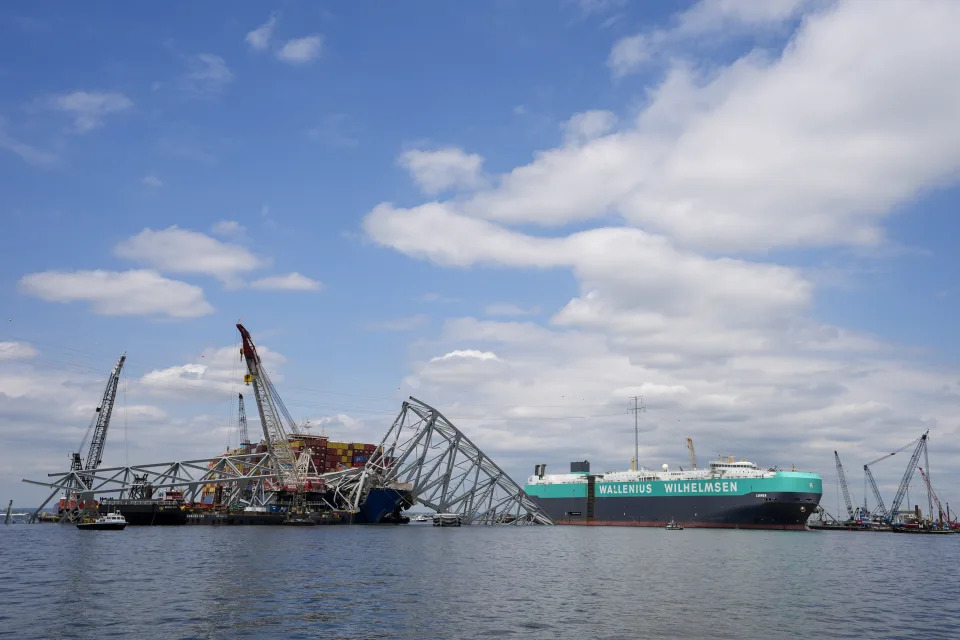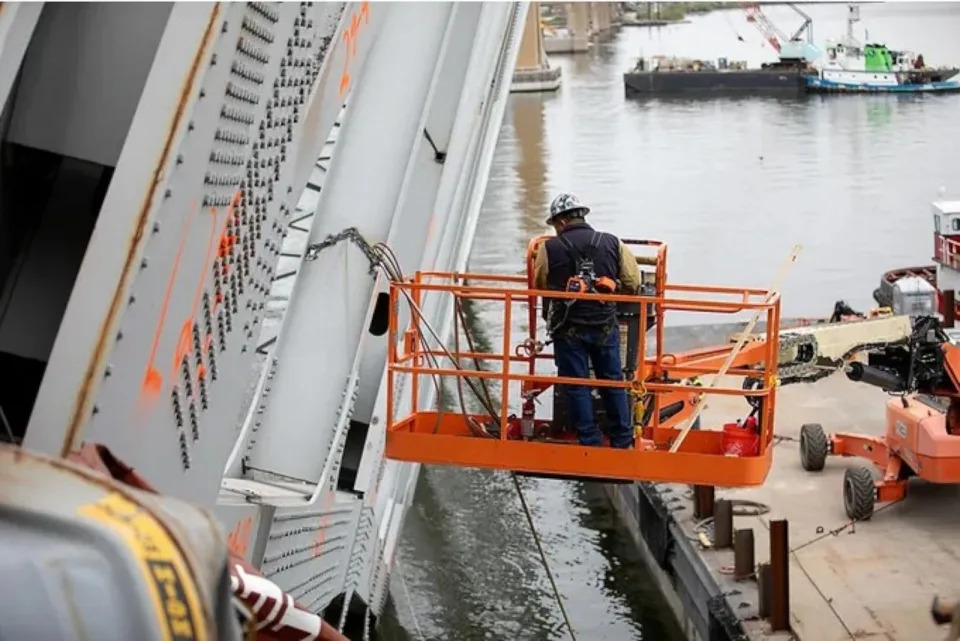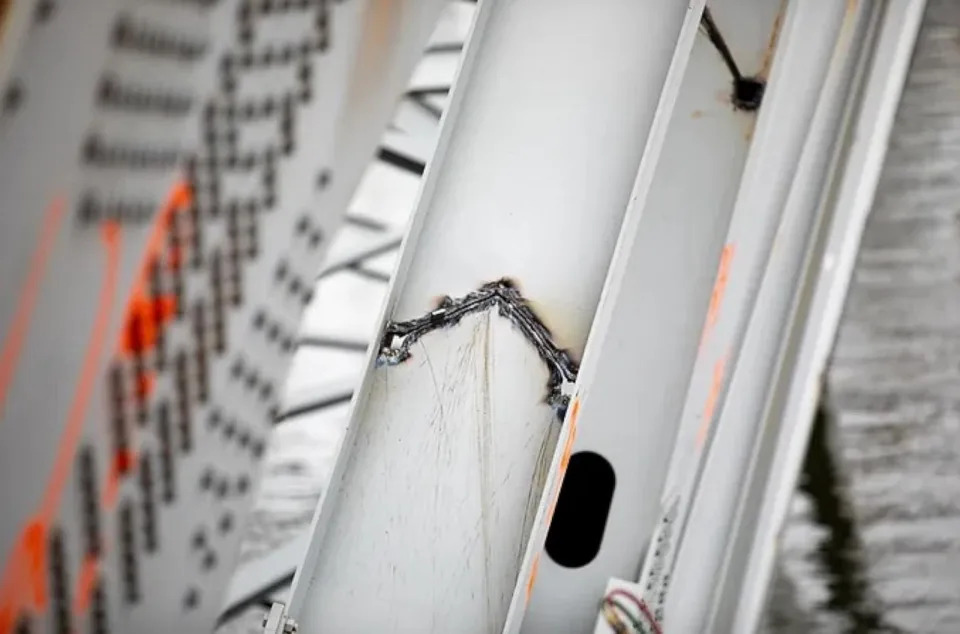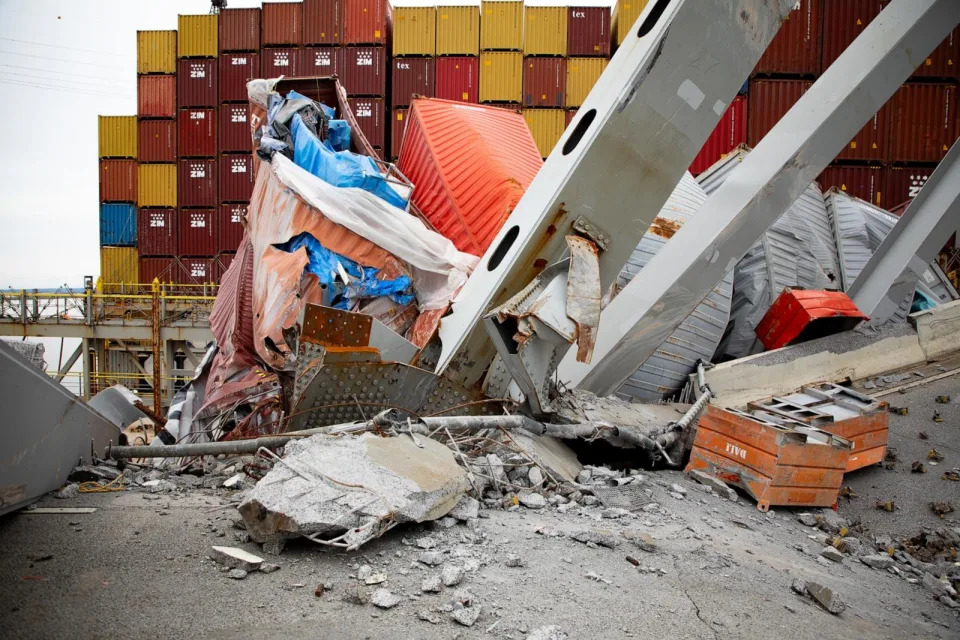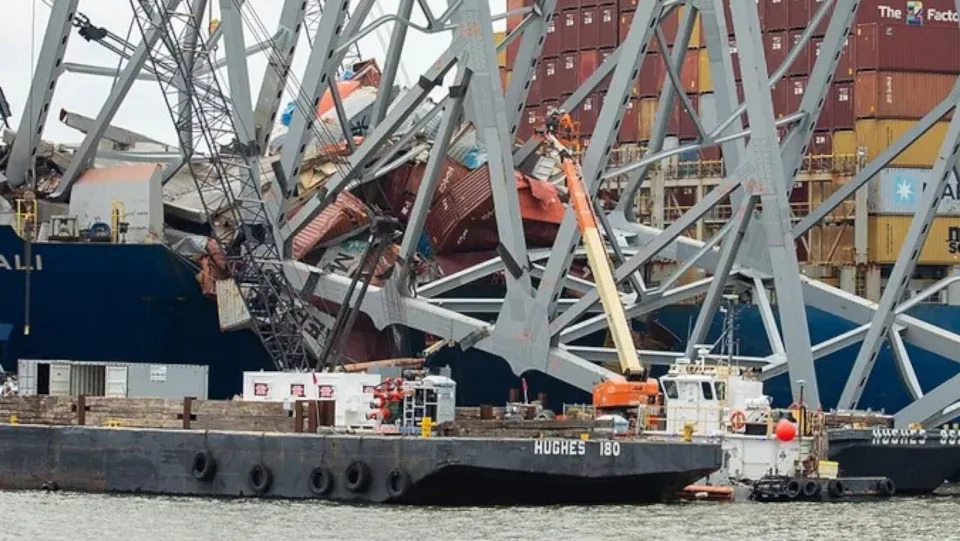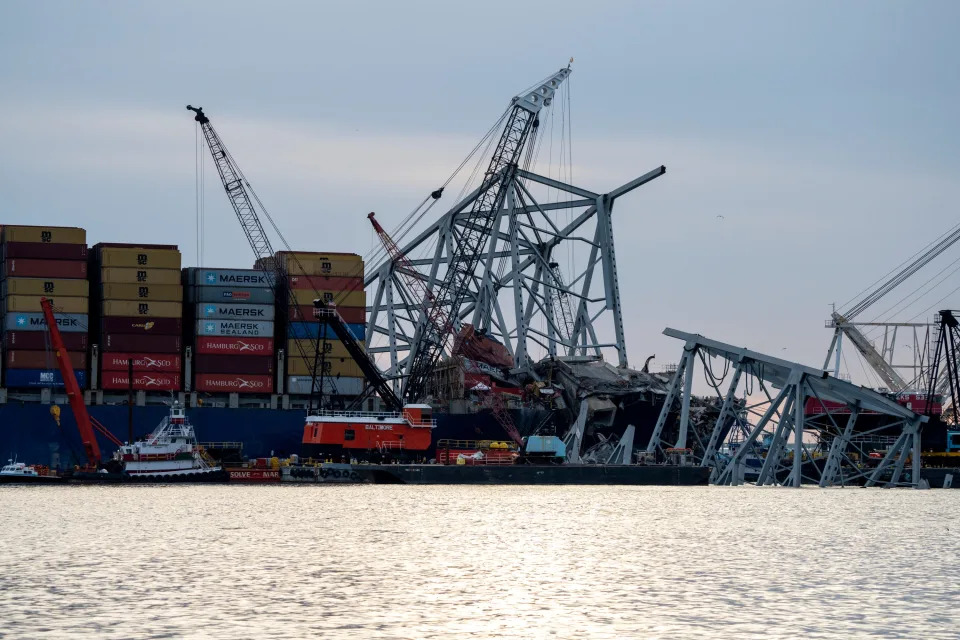A Tunisian lawyers association on Sunday called for a nationwide strike after hooded police raided Tunisia’s bar association headquarters and arrested a prominent lawyer as authorities escalated a broad government crackdown that has ensnared political dissidents, non-governmental organizations and Black migrants.
Issued on: 12/05/2024

By: FRANCE 24
Sonia Dahmani, a prominent critic of the government, was arrested Saturday night after making sarcastic remarks about Tunisia on a local television programme last week and charged with distributing false information and disrupting public order.
She was the latest dissident to be charged under the country’s controversial Decree 54, an anti-fake news law that the government has used to pursue critics of President Kais Saied.
The Tunisian Lawyers Council on Sunday called for a nationwide general strike to be held by all lawyers.
Dahmani’s advocates had gathered at the bar association Saturday to protest a warrant for her arrest when police stormed the building.
FRANCE 24's French language reporter was live on air from Tunis when hooded police officials arrived at the bar association to arrest Dahmani.
Masked police forced FRANCE 24 to stop broadcasting after tearing "the camera from its tripod" and briefly detaining the cameraman.
FRANCE 24 has condemned the "brutal intervention by security forces that prevented journalists from practising their profession as they were covering a lawyers' protest for justice and in support of freedom of expression".
'What extraordinary country are we talking about?'
The incident was the latest in a series of arrests and investigations targeting activists, journalists and civil society groups critical of Saied and the government.
The move reinforces opponents' fears of an increasingly authoritarian government ahead of presidential elections expected later this year.
Dahmani was arrested after she said, on a TV show last week, that Tunisia is a country where life is not pleasant.
During a show on the Carthage Plus TV channel, Dahmani responded to another panelist's claim that sub-Saharan migrants were seeking to settle in Tunisia.
"What extraordinary country are we talking about?" she asked sarcastically.
She was commenting on a speech by Saied, who said there was a conspiracy to push thousands of undocumented migrants from Sub-Saharan countries to stay in Tunisia.
'Attack on the Tunisian legal profession'
The bar association has long carried “symbolic power” in Tunisia, so much so that authorities didn’t enter its doors under its pre-Arab Spring dictator, Fadoua Braham, a Tunisian lawyer, told The Associated Press.
“Today we are seeing hooded individuals using force and taking away a lawyer by force because of, quite simply, a matter of opinion,” she said, noting that those who arrested Dahmani were not clearly identifiable as law enforcement officers.
Other civil society organisations expressed concern and said the arrest contributed to an ongoing crackdown on human rights defenders, activists, journalists and opposition leaders.
The Tunisian General Labour Union, the country’s most powerful workers’ group, joined other civil society organizations, activists and lawyers at the bar association headquarters on Sunday.
The group said it “strongly condemns this blatant and unprecedented attack on the Tunisian legal profession and considers it one of the preludes to establishing a state of violations and tyranny, especially since it came after a wave of incitement, promotion of hate speech, division and treason.”
'Fake news' decree
Also on Saturday, broadcaster Borhen Bssais and political commentator Mourad Zeghidi were arrested for making critical comments, lawyer Ghazi Mrabet told AFP.
Mrabet said the judiciary on Sunday placed both under a "48-hour detention warrant and (they) will have to appear before an examining magistrate".
He said Zeghidi was being pursued "for a social media post in which he supported an arrested journalist", Mohamed Boughalleb. He was sentenced to six months in prison for defaming a public official and over "statements made during television shows since February".
Arrest warrants were issued for Bssais and Zeghidi for disseminating "false information... with the aim of defaming others or harming their reputation", Tunis court spokesperson Mohamed Zitouna told AFP.
Mrabet said Bssais was detained under Decree 54, which punishes the production and dissemination of "false news".
The law, signed by Saied in September 2022, has been criticised by journalists and opposition figures who say it has been used to stifle dissent. Since it came into force, more than 60 journalists, lawyers and opposition figures have been prosecuted, according to the National Union of Tunisian Journalists.
(FRANCE 24 with AFP, AP and Reuters)
Since the 'false news' law came into force, more than 60 journalists, lawyers and opposition figures have been prosecuted

Tunisian authorities ordered Sunday the arrest of two political commentators over critical comments, a lawyer told AFP, a day after security forces stormed the bar association and took a third pundit into custody.
Sonia Dahmani, also a lawyer, was arrested late Saturday after criticising the state of Tunisia on television, her attorney Dalila Msaddek said in a Facebook post.
Msaddek said there was a "police attack" on the bar association headquarters in Tunis, with "lawyers assaulted and the abduction of colleague Sonia Dahmani to an unknown location".
Also on Saturday, broadcaster Borhen Bssais and political commentator Mourad Zeghidi were arrested for making critical comments, lawyer Ghazi Mrabet told AFP.
Mrabet said the judiciary on Sunday placed both under a "48-hour detention warrant and (they) will have to appear before an examining magistrate".
He said Zeghidi was being pursued "for a social media post in which he supported an arrested journalist", Mohamed Boughalleb. He was sentenced to six months in prison for defaming a public official and over "statements made during television shows since February".
Arrest warrants were issued for Bssais and Zeghidi for disseminating "false information... with the aim of defaming others or harming their reputation", Tunis court spokesperson Mohamed Zitouna told AFP.
Mrabet said Bssais was detained under Decree 54, which punishes the production and dissemination of "false news".
The law, signed by President Kais Saied in September 2022, has been criticised by journalists and opposition figures who say it has been used to stifle dissent.
Since it came into force, more than 60 journalists, lawyers and opposition figures have been prosecuted, according to the National Union of Tunisian Journalists.
'Extraordinary country?'
Dahmani was also arrested under Decree 54, media reported, saying she was detained while seeking safety at the bar association.
The event was filmed live by news channel France 24, which said masked police forced it to stop broadcasting, had "torn the camera from its tripod" and briefly detained the cameraman.
France 24 condemned what it called a "brutal intervention by security forces that prevented journalists from practising their profession as they were covering a lawyers' protest for justice and in support of freedom of expression".
The bar association condemned an "invasion of its headquarters and blatant aggression", demanded Dahmani's immediate release and announced a regional strike starting Monday.
Msaddek said Dahmani had been summoned to court on Friday to explain her remarks but refused to appear. A court then issued a warrant for her to be brought before the investigating judge.
Islam Hamza, another lawyer on Dahmani's defence team, confirmed her arrest to AFP.
Dahmani told journalists before being arrested that she refused to appear "without knowing the reasons for this summons".
On the Carthage Plus television channel on Tuesday, she responded to another pundit's claim that migrants from sub-Saharan African countries were seeking to settle in Tunisia.
"What extraordinary country are we talking about?" she asked sarcastically, triggering angry reactions from some social media users.
'Police state'
Tunisia is a key departure point for thousands of migrants who risk perilous Mediterranean crossings each year hoping for a better life in Europe.
But the situation of sub-Saharan African migrants in Tunisia has worsened, particularly since a Kais speech last year in which he painted "hordes of illegal migrants" as a demographic threat.
On Monday Saadia Mosbah, head of the Mnemty anti-racism association, was detained and investigated over money laundering, media reported.
Her arrest came just hours after Saied lashed out at organisations that defend migrant rights, calling their leaders "traitors and mercenaries".
Tunisian authorities have raided several encampments in recent weeks, tearing down tents and expelling migrants.
Saied was elected president in 2019 but has ruled by decree since he orchestrated a sweeping power grab in July 2021.
A demonstration on Sunday in Tunis, organised by the opposition National Salvation Front (NSF) coalition to demand "free and fair elections" by the end of the year, drew a crowd of some 300 people, AFP correspondents reported.
The protesters chanted "Stop the police state" and "Down, down with Kais Saied", they said.
Veteran politician and NSF co-founder Ahmed Nejib Chebbi condemned what he called a "freedom-killing system".
"All freedoms have been attacked. Today, it is absolute personal power which subjugates all of the instruments of state to stifle rights and freedoms."


